Factorio Friday Facts #418 - Space Age release date


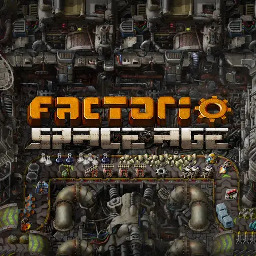
Just another Swedish programming sysadmin person.
Coffee is always the answer.
And beware my spaghet.











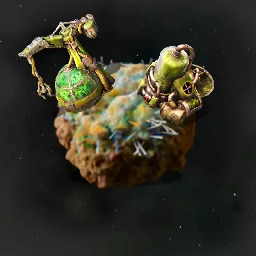


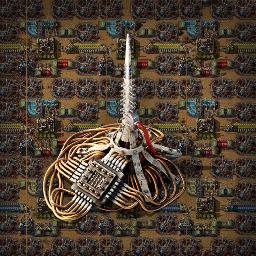


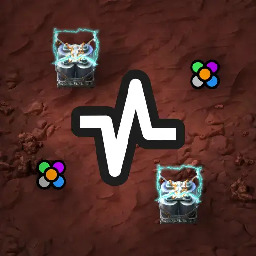


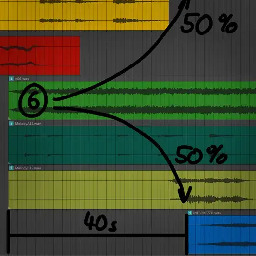







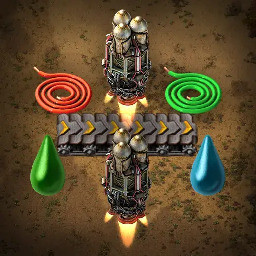





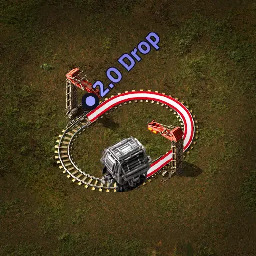





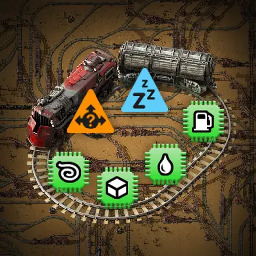


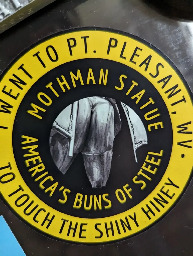
















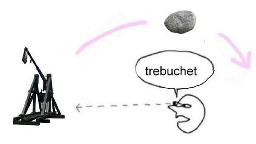





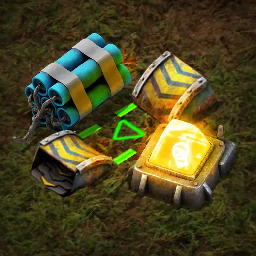








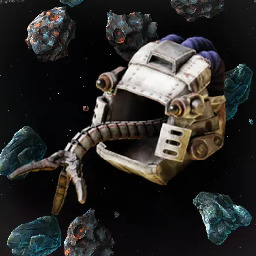





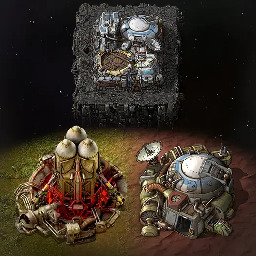


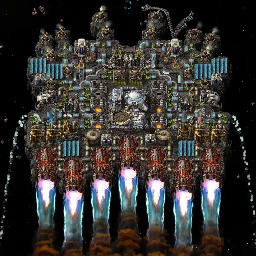





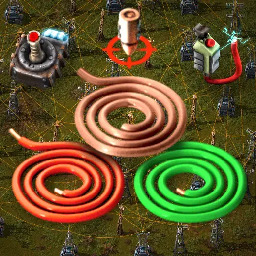


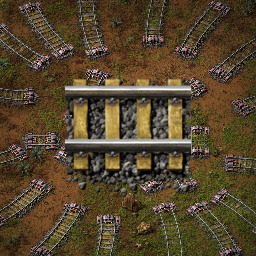


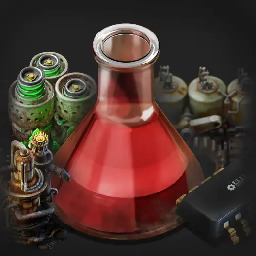
I love their response to (paraphrasing) "Are you going to do another Darth Vader and alter the deal on us in the future?" - "Oh yes, potentially every year."
Go really does do well in the zero-to-hero case, that's for certain. Unfortunately it doesn't fare nearly as well in terms of ease when it comes to continued development.
A lot of that data doesn't actually exist, ostree hardlinks data blobs internally, so the actual size on disk is much smaller than most disk usage tools will show.
Eggroll
Flatpak already creates executable wrappers for all applications as part of regular installs, though they're by default named as the full package name.
For when inkscape has been installed into the system-wide Flatpak installation, you could simply symlink it like; ln -s /var/lib/flatpak/exports/bin/org.inkscape.Inkscape /usr/local/bin/inkscape
For the user-local installation, the exported runnable is in ~/.local/share/flatpak/exports/bin instead.
If you're going to post release notes for random selfhostable projects on GitHub, could you at least add the GitHub About text for the project - or the synopsis from the readme - into the post.
Go has a heavy focus on simplicity and ease-of-use by hiding away complexity through abstractions, something that makes it an excellent language for getting to the minimum-viable-product point. Which I definitely applaud it for, it can be a true joy to code an initial implementation in it.
The issue with hiding complexity like such is when you reach the limit of the provided abstractions, something that will inevitably happen when your project reaches a certain size. For many languages (like C/C++, Ruby, Python, etc) there's an option to - at that point - skip the abstractions and instead code directly against the underlying layers, but Go doesn't actually have that option.
One result of this is that many enterprise-sized Go projects have had to - in pure desperation - hire the people who designed Go in the first place, just to get the necessary expertice to be able to continue development.
Here's one example in the form of a blog - with some examples of where hidden complexity can cause issues in the longer term; https://fasterthanli.me/articles/i-want-off-mr-golangs-wild-ride
Well, things like the fact that snap is supposed to be a distro-agnostic packaging method despite being only truly supported on Ubuntu is annoying. The fact that its locked to the Canonical store is annoying. The fact that it requires a system daemon to function is annoying.
My main gripes with it stem from my job though, since at the university where I work snap has been an absolute travesty;
It overflows the mount table on multi-user systems.
It slows down startup a ridiculous amount even if barely any snaps are installed.
It can't run user applications if your home drive is mounted over NFS with safe mount options.
It has no way to disable automatic updates during change critical times - like exams.
There's plenty more issues we've had with it, but those are the main ones that keep causing us issues.
Notably Flatpak doesn't have any of the listed issues, and it also supports both shared installations as well as internal repos, where we can put licensed or bulky software for courses - something which snap can't support due to the centralized store design.
This won't really affect the development of ZLUDA much in particular, since the main developer happens to live in The Netherlands, and clean-room reverse engineering - especially for interoperability purposes - is fully protected by law in the EU.
But NVIDIA does really like to make it as much of a pain as possible to support CUDA software anywhere but for a single user on their personal consumer-grade desktop.
The main benefits to BTRFS over something like ext4 tends to be considered as; the subvolume support - which is what's used for snapshotting, the granluar quotas, reflinks, transparent compression, and the fact that basically all filesystem operations can be performed online.
I'm personally running BTRFS in a couple of places; NAS, laptop, and desktops. Mainly for the support to do things like snapshots and subvolumes, but I also make heavy use of both reflinks and compression, and I've also made use of online filesystem actions quite a few times.
Has anything actually happened in ownClouds development?
The last I saw of them was FOSDEM a few years back, where NextCloud were handing out whitepapers and showing off their new Hub, chat, VoIP stack, group sharing system, and more. And ownCloud were sat somewhat opposite with two people and a screen showing a screenshot of a default ownCloud install, along with a big sign hanging from the ceiling saying "Join the winning team."
Took this a few days ago. I'd been reading, and put my pad down to go grab a cup of tea, returned to this.
The image is downscaled quite a bit, was originally posted elsewhere and had to fit in the size limit.

I think the only project I've seen so far where I've felt that a blockchain has actually been the correct choice is Alfis, which is a decentralized DNS that uses the blockchain as the public append-only ledger that it is, and it uses proof-of-work to add arbitrary costs to updates - to make spamming or namesquatting expensive.
To me it sounds a lot like "We don't really want to answer that question, so here's a bit of technobabble to ease your mind."
I mean, writing your own linked list in C and then summing its values could be considered as having "a proprietary data model that calculates", but it has basically nothing to do with the question on how they track such things, just hints that they're not using an existing - and proven - tracking method.
To clarify; they took the question "How are you tracking installs" to mean "With your tracking data, how are you counting installs", and then basically answered "We add the numbers together"
This is a complete non-answer, and it seems to suggest that their actual tracking method is likely unreliable.
If they actually put trackpads on them then Windows wouldn't be as much of an idiotic decision.
Windows with only sticks is absolutely insane, Windows with trackpads is just less smart.
It makes sense to use the words that people are most used to, and bluescreen/BSOD has been the go-to lingua for describing a crash/error screen - even if not blue - since a while now.
Great, now I can finally play MY LITTLE PONY: A Maretime Bay Adventure without having to worry what my friends will think of me. A++ feature.
Flatpak uses OSTree - a git-like system for storing and transferring binary data (commonly referred to as 'blobs'), and that system works by addressing such blobs by hashes of their content, using Linux hardlinks (multiple inodes all referring to the same disk blocks) to refer to the same data everywhere it's used.
So basically, whenever Flatpak tells OSTree to download something, it will only ever store only copy of that same object (.so-file, binary, font, etc), regardless of how many times it's used by applications across the install.
Note that this only happens internally in the OSTree repo - i.e. /var/lib/flatpak or ~/.local/share/flatpak, so if you have multiple separate Flatpak installations on your system then they can't automagically de-duplicate data between each other.
It could be that running the game at full speed causes some lock contention that doesn't happen when slowed down by the log stream.
Or it could also be that under normal gameplay your system spins down the harddrive to save power due to a lack of accesses, which would cause slowdowns and choppiness when the game suddenly needs to load something - also something which would be helped by running the log in the background.
For testing the second point, I'd suggest running something like this in the background while playing; (i.e. generating some constant load)
while true; do
uptime > $HOME/workaround-test
sleep 1
done
It's somewhat amusing how Itanium managed to completely miss the mark, and just how short its heyday was.
It's also somewhat amusing that I'm still today helping host a pair of HPE Itanium blades - and two two-node DEC Alpha servers - for OpenVMS development.
If you build a linked list in C, and put the pointer to the next entry as the first element in your struct, then you only need a single variable (and two comparisons) to do sorted insertion into the list.
My favourite advent calendar.
Got a private leaderboard with the other sysadmins from work - as well as a few people from our application/development team.




I see some of these have already been mentioned, but they do deserve repeating;
I work as a Linux sysadmin for a university, we're paying for a full RedHat site license with all the goodies, and we certainly feel royally screwed over by this.
Not every single piece of software we run is a RedHat developed/sanctioned thing, and the removal of a guaranteed bug-compatible development platform for the people building those pieces of software - without jumping through hoops or limiting development efficiency - mean that we can no longer guarantee that core pieces of our infrastructure software will remain available for our RHEL installs. Not to mention course IT, where things are even worse in that regard. Lots of such software is already developed/tested/packaged on Alma/Rocky, and if they start diverging from being RHEL bug-compatible - which is very likely with this change - then we're going to either have to switch away from RHEL - and the paid support, or lose support from the pieces of software.
We're probably going to have to move a bunch more of our ~1.4k systems off of RHEL and onto things like SUSE, Debian, etc in the near future, just so that we're ready for when shit really hit the fan.
Been using the KeyDB fork for ages anyway, mainly because it supports running in a multi-master / active-active setup, so it scales and clusters without the ridiculousness that is HA Redis.
It's great to see more full-AMD hardware from TUXEDO. I'm currently using their Aura 15 Gen2, and my only complaint is about the fingerprint sensor - which isn't even really a TUXEDO issue as they have written and submitted a patch upstream for libfprint which makes it work. (And since I'm using Gentoo I've just dropped that patch into my local portage tree until upstream merges it)
They're definitely not the cheapest computer vendor, but their quality is good and their support is great. No odd boot behaviors, ACPI errors, random device disappearances, etc, like I've had with other non-Linux-first vendors.
Factorio is great, I'm also a fan of X4.
Apparently the new OLED screen will be available through iFixit
RHEL is going hard on XFS, they've even completely removed BTRFS support from their kernel - they don't have any in-house development competency in it after all. It's somewhat understandable in that regard, since otherwise they wouldn't necessarily be able to offer filesystem-level support to their paying customers.
Though it is a little bit amusing, seeing as Fedora - the RHEL upstream - uses BTRFS as their default filesystem.
I hope you've joined the Linux User Group - LUG - Org in Star Citizen.
We're steadily gunning for the top ten spot in org sizes. (Currently the 14th largest)
The one that explicitly states in its license that you're not allowed to ship anything using it?
GitLab has been working on support for ActivityPub/ForgeFed federation as well, currently only implemented for releases though.
Not at all what my point was. There's indeed plenty of Open-something (or Libre-something) projects under the sun, but no free/open spins of commercial projects named simply "Open".
I've been personally using KDEs Itinerary app, but it might not be what you're looking for
Valve did purchase the for-profit MoltenVK layer and had it open-sourced under the Khronos umbrella, so they've already been happy to provide people a Vulkan-on-Metal solution for those who want to support Apple without an entirely separate rendering engine.
Basically, you can open some widgets inside a standalone window instead of attaching them to a bar/desktop, making them act like some kind of standalone application instead - including losing all their state as soon as their window is closed.
Well, both SUSE and Fedora use BTRFS as the default file system, RHEL uses XFS, etc.
To be fair, having to interact with MS Teams with any part of your body is painful.